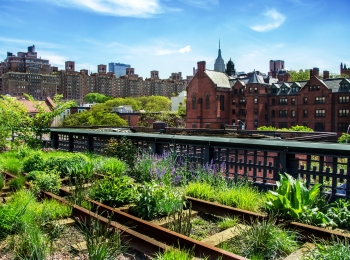Expanding the scope of sustainable investments
The amount of money invested in sustainable products in
The goal of sustainability is to enable everyone to live with a decent quality of life without jeopardizing the quality of life of others. A fundamental change required by "sustainable" thinking is to expand the perimeter of people and things that are considered when making decisions. A self-centred framework will only ask "What’s in it for me?" and unfortunately too many investment decisions are still made using this analytical framework way.
By contrast, a more sustainable framework asks: "What is in the best interest of our collective system?". Thus, a sustainable mindset encourages all of us to take into consideration the consequences of our actions (including investment decisions) on ourselves, but also our fellow citizens, people who live in other countries, future generations, and even non-human living beings.
In
To be more sustainable, our investments must be accompanied by a redefinition of our values. We need to broaden the words "value" and "wealth" beyond their monetary meaning. A few weeks ago, Nobel Prize winner Joseph Stiglitz advocated including health, education, equality of opportunity and the state of the environment in our development goals and measures of well-being. In short, he suggests that we better value all the conditions that lead to a good life and a resilient society over the long term.
The field of sustainable investments is currently moving in the right direction. So-called "impact investments" aim to simultaneously produce positive financial, environmental and social results. But the individual sustainable investor can go much further. If you are lucky enough to have some savings and you wish to support the environment, then it would be a pity to limit yourself to the "green" products offered by the financial system. Indeed, there is a whole range of other investments that can promote a change in values, push our societies towards sustainability and remain interesting for the individual.
Even daily and personal expenses can be seen as micro-investments in sustainability, especially if they trigger a change in values and behaviour in the individual. Here are some examples of expenditures that offer a very interesting "return on investment" for both society and the individual:
- Investing in personal development, through books (philosophy and religion) or courses (music, yoga or meditation). Although this may seem self-centered at first glance, such activities can often set the stage for more meaningful changes and less materialistic life-styles.
- Investing in a plot of land or a collective garden to create a vegetable garden. The writer Voltaire would have approved! Indeed, this activity allows one to discover the pleasures (epicurean and philosophical) of producing one's own food, but also to better appreciate the challenges of the agricultural world.
- Local, seasonal and certified food products (e.g., organic or, even better, Demeter, which is a reliable and demanding certification for biodynamic products) are generally more expensive than their chemically-doused counterparts. However, the surplus cost of high quality food can be seen as an investment in the health and fertility of local farm soils (which are essential for long-term health of our farms), the quality of underground water (that ends of in our faucets, sooner or later), the stability of the climate (because organic products generate fewer greenhouse gas emissions), and the health of the farming community in your area.
- Investing your money (or volunteering your time) in community life, to rediscover your altruistic side (which, admittedly, had been put on the back burner for a while, at least for some of us).
- View your taxes as investments in communal projects and something to be proud of, rather than something to be "optimised". Too many people currently boast of the tax they avoided, and we will all be better off when most of us boast of how much we contributed to the health of our counties and countries.
- Subscribe to multiple, politically diverse, high-quality news sources. Well-financed independent reporters are the guardians of Truth and Knowledge, both of which are necessary for long-term health of our democracy.
These investments offer us a path to rediscover complex and rich values, where happiness is achieved not through social status or the accumulation of material objects, but through the pleasure of knowing that we are acting in such a way that enriches our society in the long term. And if these investments also allow us to reduce our ecological footprint even just a little, then we will also enjoy knowing that we will have been a little less of a burden for future generations.
So let's avoid associating sustainable finance only with the purchase of products or services (green bonds, ESG-stocks, electric cars), which, in the end, have only a marginal effect on helping us transition to a sustainable society. In addition, let’s invest our savings, time, and resources in activities that generate true wealth that is shared with our communities and that will bring long-term prosperity.
[A modified version of this text appeared in French in the newspaper Le Temps on September 21, 2020 (link).]
Martin Schlaepfer
Martin Schlaepfer est biologiste de formation (écologie et évolution). Pendant dix ans il a fait de la recherche et enseigné dans les domaines de la conservation de la nature et du comportement animal. Il s’intéresse à l’intégration de la biodiversité et des services écosystémiques dans les Objectifs de développement durable. Il a notamment participé à la création du Massive Open Online Course "Ecosystem Services : A Tool for Sustainable Development" sur la plateforme Coursera.



